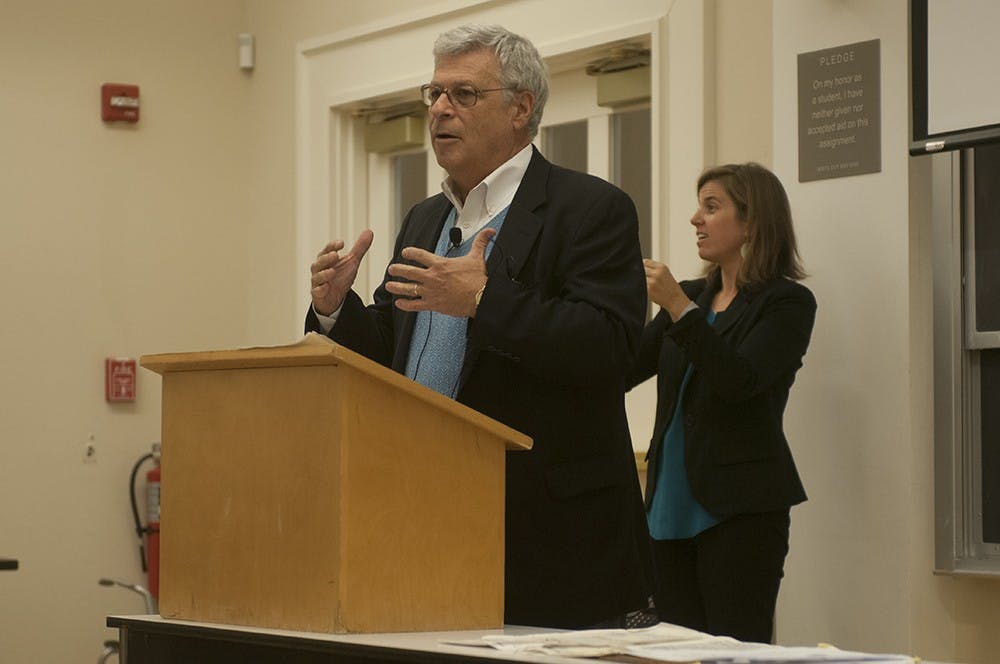Disability Acceptance Week kicked off Monday with a lecture on legislation surrounding disability issues. The week will include a series of lectures and events held through Thursday.
Co-sponsors of the event include Student Council, OpenGrounds, U.Va. Arts, the Office of the Provost and Vice-Provost, American Sign Language Program, Disability Studies Initiative, the Institute of the Humanities and Global Cultures as well as the Disability Action and Advocacy Committee, a sub-council of the Office of Diversity.
OpenGrounds Program Manager Angela Nemecek said the lectures and events aim to increase public awareness.
“I think one of the major goals is just to bring visibility and acceptance to the many kinds of disabilities — to get away from the idea that disabilities are all physical or visible,” Nemecek said.
Nemecek also emphasized the importance of celebrating disability.
“That’s a piece of it too,” she said. “To get away from the idea of disability as some kind of misfortune that befalls people and think of it as just as another aspect of human diversity, like race or sexual orientation.”
Events scheduled for the week include a film screening of “Adam,” a romantic drama in which the main character has an Autism Spectrum disorder, accessibility ally training hosted at OpenGrounds, and a show by comedian Nina G.
Guest-speaker Robert Silverstein kicked off the week Monday with a lecture on the Americans with Disabilities Act, which just celebrated its 25th anniversary.
Silverstein was a key member of the Congressional group which sought to pass the act in the 1990s.
The ADA was proposed to afford citizens with disabilities the same rights as those without, Silverstein said. The bill was particularly in response to rampant discrimination against physical and mental disabilities in the United States up until the 1990s.
“Businesses could discriminate, employers could discriminate, and those state programs that did not receive federal aid, were all able to discriminate based on the issue of disability,” Silverstein said.
Silverstein brought up legislation known as “ugly laws,” which existed in several major cities until the 1970s and made it illegal for anyone with an “unsightly or disgusting” physical disability to appear in public. Silverstein also cited court cases which upheld the denial of public education to children with disabilities and made forced sterilization of disabled persons legal.
Silverstein spoke about the challenges of working to introduce the bill before the House of Representatives.
The solution, he said, was to establish a grassroots campaign with a unified front from the disabilities community.
“We knew that the only way to deal with the folks that were opposing this civil rights statute was unity,” Silverstein said of working to promote the ADA.







